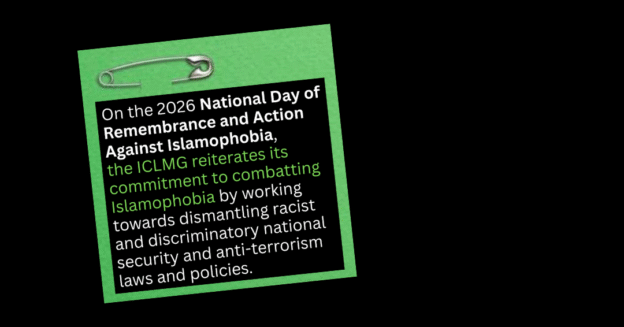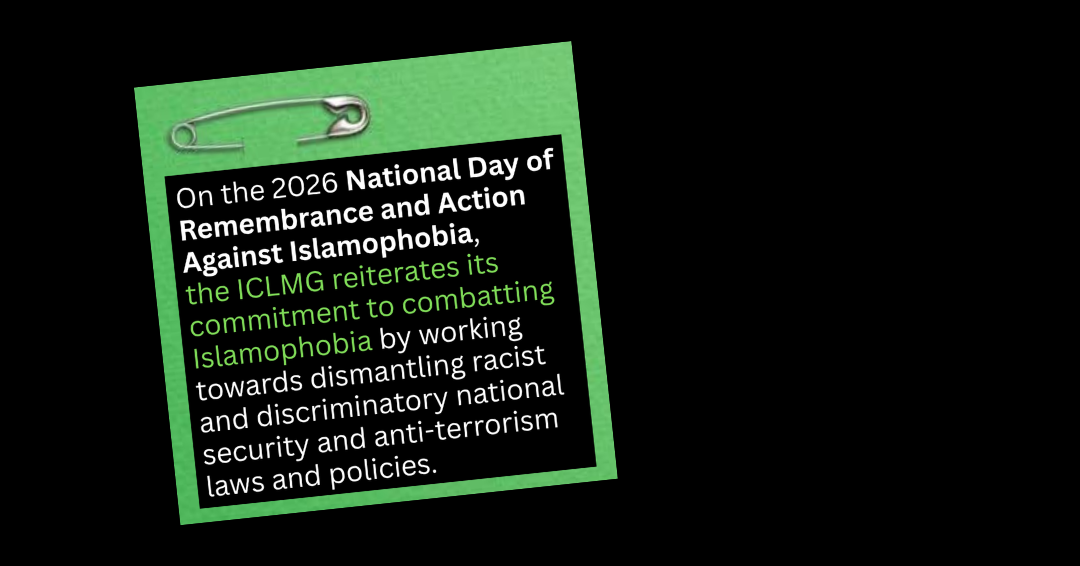
On February 2nd, 2026, the International Civil Liberties Monitoring Group sent the following comments to the federal government in the context of their 30-day consultation on their proposed Regulations for the Foreign Influence Transparency and Accountability Act (which was part of Bill C-70, the Combatting Foreign Interference Act, which was rushed through Parliament in May and June 2024):
Concerns
The Foreign Influence Transparency and Accountability Regulations as currently drafted fail to clarify some key aspects of the Foreign Influence Transparency Registry that were raised during the legislative process and that are necessary for ensuring clarity and specificity regarding the conditions under which individuals and organizations must register.
In particular, there is concern regarding the term “foreign principal” and what constitutes an “arrangement,” as well as the lack of inclusion of any clear exceptions to the requirement to register beyond those in the Act, which are currently insufficient.
These concerns are acknowledged in the “Consultation” subsection under “Regulatory Development”, where it states that “Lastly, civil society organizations and diaspora groups had questions about registration requirements for individuals linked to foreign-funded institutions or media outlets. Clarification on this issue will be shared through future outreach materials.”
However, future “outreach” will not adequately serve the purpose of providing the certainty necessary for individuals and organizations around whether their activities require registration with the foreign influence transparency registry that can only be achieved in either regulations or in the law. Moreover, during consultation sessions and engagement around the Combatting Foreign Interference Act, there were assurances given that certain areas would be further defined under regulation, including what constitutes a foreign principal, further specifics around what constitutes an arrangement with foreign principals, and entities or kinds of arrangements that would be excluded from the need to register.
Without further clarifications or carve-outs, Canadian organizations that work in association with, for example, the United Nations, NATO, the World Health Organization, the International Labour Organization, La Francophonie or any other host of organizations whose members are States may face a requirement to register their activities with the foreign influence transparency registry. Canadian individuals and organizations who work in association with State controlled/funded academic institutions or media could also be required to register their activities. For example, countries, including France, Germany, Mexico, Australia, have extensive and robust publicly funded university systems. Others, like the UK, France and Australia, also feature publicly funded media.
Because of the lack of clear definition of what constitutes “working in association with” under the definition of an “arrangement” in the Foreign Influence Transparency and Accountability Act, there is no clarity around what consists of an “association.” As the Canadian Civil Liberties Association pointed out in their brief on Bill C-70, there is no requirement for an association to consist of a subordinate relationship between the Canadian and foreign entity, where the foreign entity exerted a degree of control over the Canadian entity. Would, therefore, simply being in contact with a multilateral organization, an academic at a foreign university or with a journalist at a publicly funded broadcaster about an issue that raises public policy concerns, require registration? The lack of clarity in both the law, and in regulation, leaves this open to misinterpretation and a quashing of Canadian civil society engagement in multi-lateral platforms and discussions.
Given the significance of the administrative monetary penalties proposed in the regulations, this could result in a high degree of over-compliance and will also require the expenditure of valuable time and limited resources and capacity. It would also result in a large number of international cooperation activities that are in no way under “foreign influence” being labeled as such, and therefore stigmatizing work that is otherwise to be encouraged and supported.
This would also have an impact on freedom of expression, given that organizations that work with international partners who fall under the definition in the Act may refrain from speaking out on issues that they would normally engage on, because of the concern that they would now need to register.
Finally, the ICLMG remains concerned that the registry could be used to surveil international engagement instead of fulfilling its declared purpose. The information organizations will be required to submit would be a trove of data that government agencies would never otherwise be privy to. While on its own innocuous, it could be used to map legitimate activities for other national security or foreign affairs purposes that are at best case unrelated, but could also be either detrimental, harmful or at odds with the work being carried out. For example, information regarding international human rights work could reveal to government officials partnerships that would otherwise remain confidential to protect identities. While this may not be publicly listed in the registry, it could be accessed by national security agencies under other legislation. This information could be This information could be abused for political reasons, or used in ways that place the work or people’s lives in jeopardy.
Recommendations
It is imperative that regulations address these concerns before any future registry is established. We would encourage the government to re-open consultations with civil society stakeholders in advance of adopting these regulations. We would also recommend that the government look to other countries to examine what kind of carve outs and exceptions currently exist that could be integrated into this regime. This includes, for examples, carve outs for humanitarian aid and charities, for scientific, academic and religious pursuits, for news media, among others, in US, Australian and UK regimes.
Since you’re here…… we have a small favour to ask. Here at ICLMG, we are working very hard to protect and promote human rights and civil liberties in the context of the so-called “war on terror” in Canada. We do not receive any financial support from any federal, provincial or municipal governments or political parties. You can become our patron on Patreon and get rewards in exchange for your support. You can give as little as $1/month (that’s only $12/year!) and you can unsubscribe at any time. Any donations will go a long way to support our work. |







